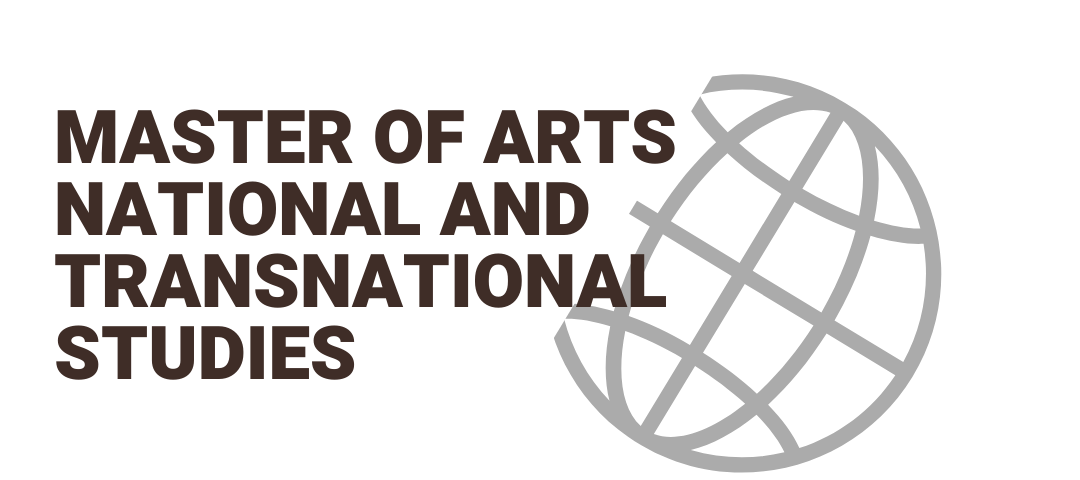Curriculum

The Master of Arts (M.A.) in National and Transnational Studies: Literature, Culture, Language
The M.A. NTS programme focuses on cultural ramifications and representations of the social phenomena of nationhood, nationalism and transnationalism. Highly relevant to contemporary social and academic debates, these phenomena have also played an important role historically, and remain central to questions about our social and cultural future – world-wide.
Traditional philological study was often limited to individual national states and national languages. This innovative M.A. connects national with transnational perspectives. The curriculum explores cultural, literary and linguistic phenomena from different periods and regions, with a strong emphasis on comparative and interdisciplinary approaches.
On a ‘national’ level, topics include constructions and developments of national identity, integration, canon formation, national aesthetics, cultural traditions, cultural memory and varieties of English. On a ‘transnational’ level, topics include globalisation, transnational cultural production, migration and diasporas, as well as the role of English as a world language. Further central topics include colonialism and postcolonialism, other forms of cultural contact and conflict, minority languages and cultures, as well as regionalism.
The linguistic aspects of the course programme are mainly concerned with the local and global dynamics of World Englishes. The MA covers many different linguistic topics, such as sociolinguistics, postcolonial Englishes, linguistic imperialism, language planning and policies, Creole languages, multilingualism, globalization or performance. In the MA programme students can choose from a wide range of linguistic approaches: for example, sociolinguistics, corpus linguistics, phonetics, (2nd) language acquisition, (variational) pragmatics, or language attitude research.
The programme combines a variety of taught courses with a strong research orientation that enables students to pursue independent projects from their first semester onwards.
Our aim to enable the acquisition of a wide variety of skills and profiles is also reflected in the range of assignments and assessment forms we use: these combine traditional and innovative approaches, including individual and group work, written and oral exams, presentations in class and online, short essays, substantial research papers, annotated bibliographies, book reports and reviews, abstracts and drafts for conference papers, portfolios, and a final thesis.
Although mainly based in the English department (where English is the sole language of instruction), this M.A. programme has a strong interdisciplinary orientation, not only through interdisciplinary courses taught by the English Department itself, but also through an integrated External Module in the 3rd semester which allows students to participate in a variety of thematically relevant courses in other departments and disciplines, and partly also in other languages.
The international orientation of this M.A. is also reflected in the possibility of spending one semester abroad, studying relevant subjects at another university.
The compulsory module “Work Experience” can likewise be completed abroad, though it may also be completed in Germany. The module gives students practical experience in professional fields that are especially relevant to the thematic and international focus of this Master programme, either outside the university (for potential employers, see below), or in-house by acquiring academic teaching experience in tutorials for B.A. students at the English Department.
These various options for individual choice and specialisation enable students to develop precisely tailored academic and professional profiles in accordance with their interests and abilities – profiles which prepare them for national and international careers in both academic and non-academic sectors.
Preparation for academic careers (e.g. via PhD study) is facilitated through this Master programme’s strong orientation towards research, as well as towards recent disciplinary and theoretical developments.
Preparation for non-academic careers is facilitated through the programme’s emphasis on international perspectives and on transferable skills. Students are trained not only in self-organised independent work, but also in team work and group projects. They develop their media competence and possess advanced English-language skills in oral and written communication. A compulsory module "Work experience" is also part of this programme.
Potential fields of employment for our M.A. graduates include academic institutions, media and publishing, advertising and public relations, museums, festival organisation, consulting, national and international organisations dealing with migration, language policy or international cultural relations, as well as multinational private businesses in various sectors.

